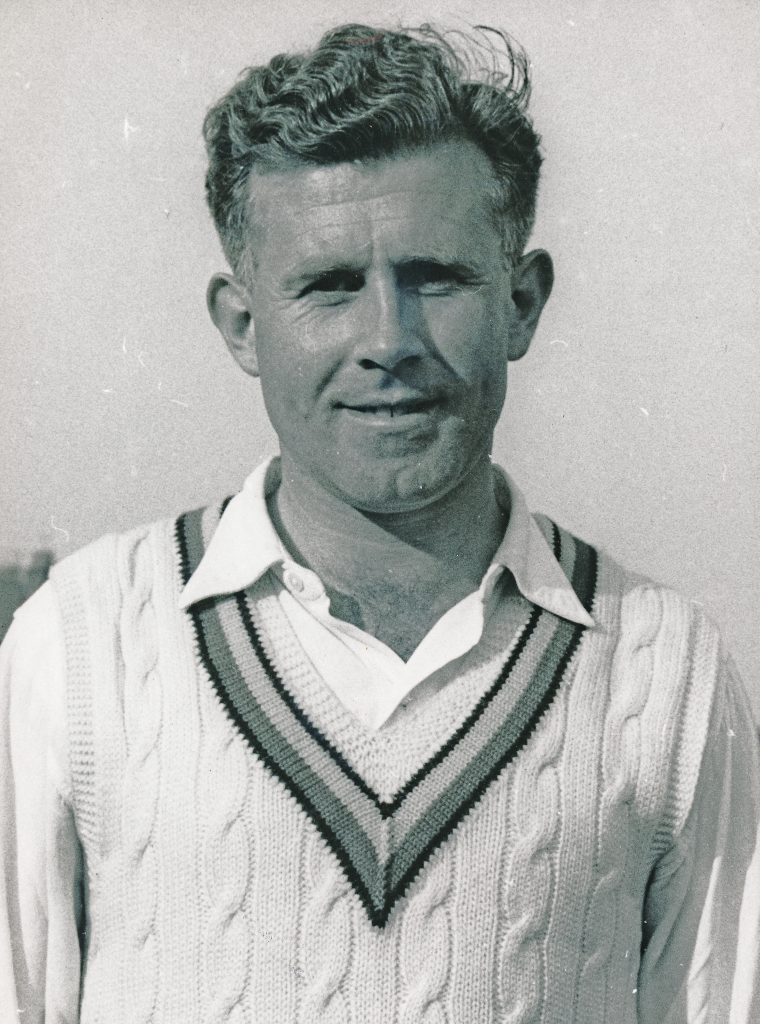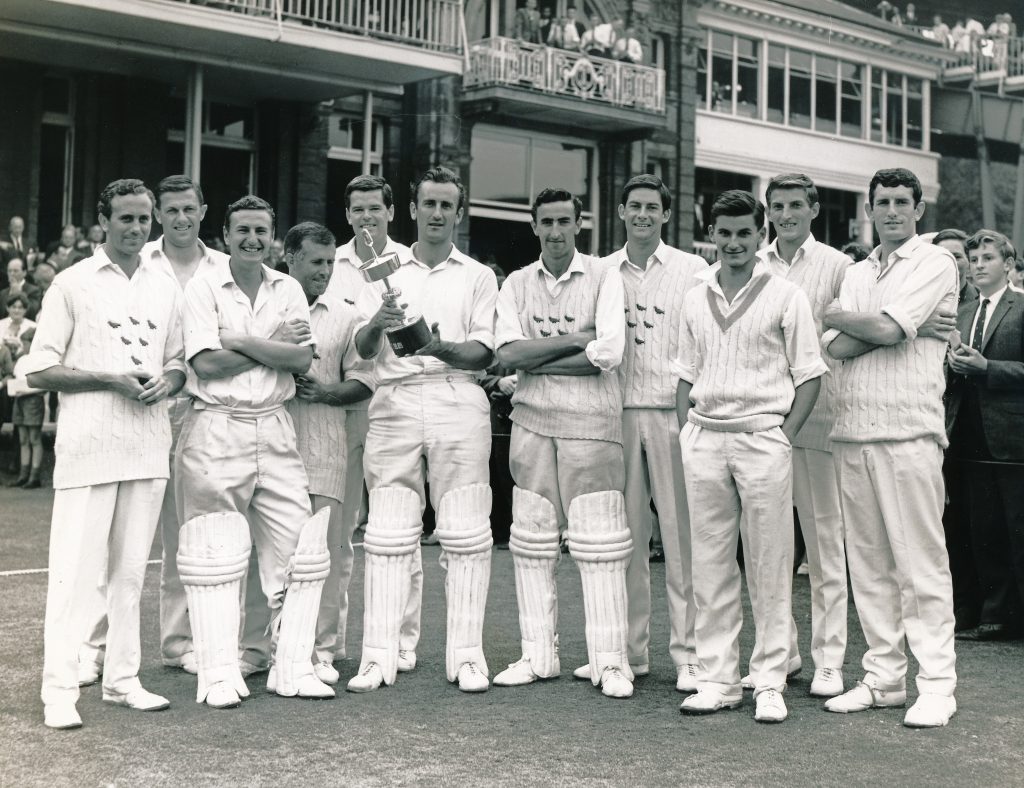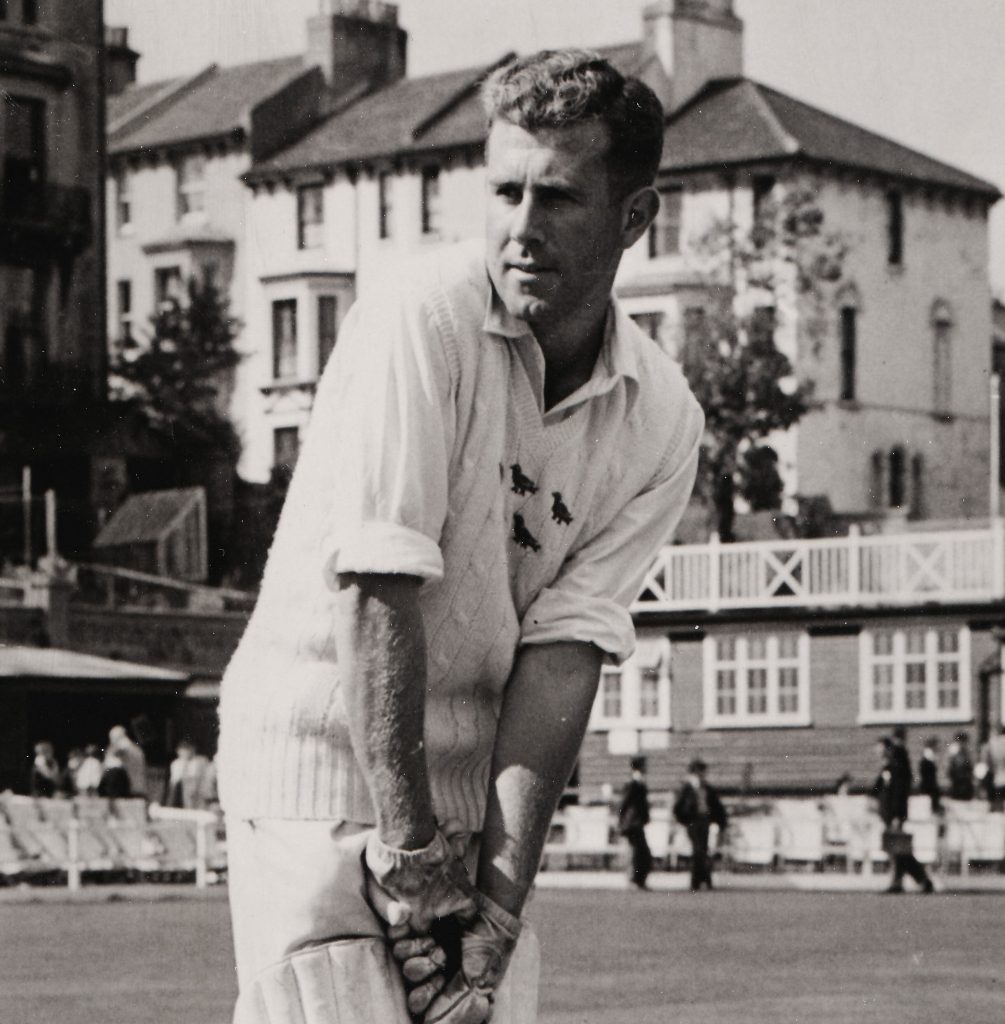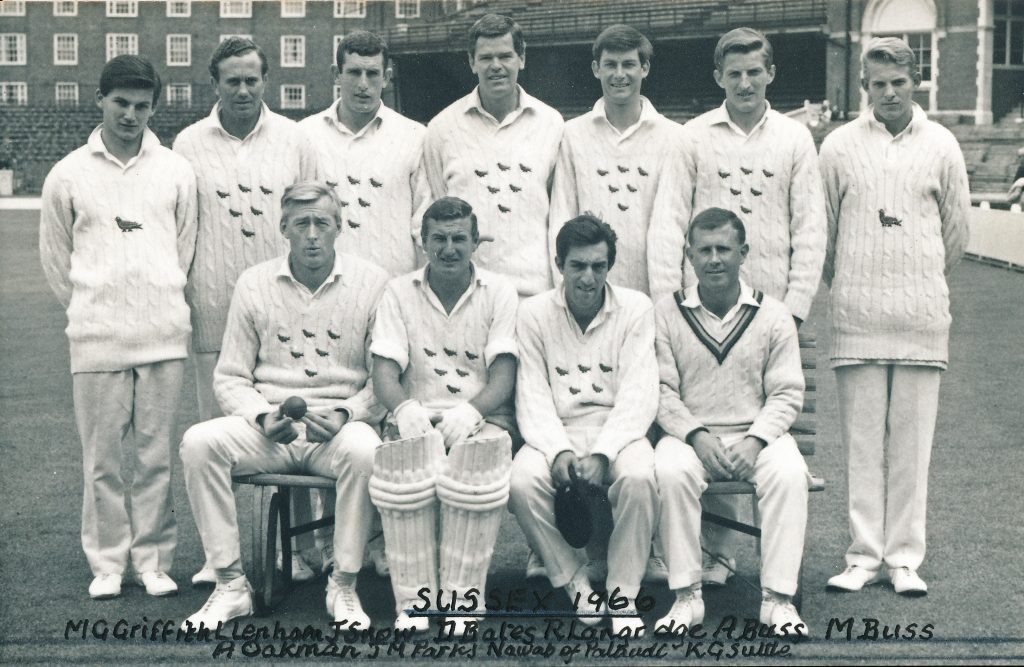He played 423 consecutive matches
Ken Suttle was an all-rounder who spent years serving his county without ever reaching the very highest level in cricket. He was selected to go on a tour of the West Indies but never got to play in a Test match and stands equal third with Les Berry in the list of players with most first-class runs not to have played a Test. During his career with Sussex Suttle played 423 consecutive Championship matches (August 1954-June 1969), still a world record and unlikely to be beaten. He achieved this feat whilst playing during an era when Sussex readily left out proven professionals in order to accommodate the sometimes brilliant amateurs such as David Sheppard, Hubert Doggart and the Nawab of Pataudi.
Suttle was born at Brook Green, Hammersmith on 25 August 1928. His family moved to Worthing when he was nine and he received his secondary education at Worthing High School where he showed proficiency at several sports, but especially football and cricket. After school, he served his National Service in the Parachute Regiment and returning to Worthing scored heavily in Worthing club cricket.


He could have played professional football
In 1949 Suttle had the opportunity to play either football or cricket at a high level. He was a quick winger and had been signed by Chelsea in 1948 although it was not until he moved on to Brighton & Hove Albion in 1949 that he made his three League appearances. The same year he received a call up from Sussex and he decided to join the club, marking his debut against Hampshire with an unbeaten 12. He had to wait three years for his first hundred for Sussex which was against Worcestershire at Eastbourne in 1952 – the year he was awarded his Sussex cap.
His debut century was a special innings and displayed all his qualities. After the first innings, Sussex trailed Worcestershire by 271 runs, and were 264 for 8 in their second innings when Suttle was joined at the crease by Peter Kelland (whose batting average at the end of the season was nine). Suttle shielded Kelland from the bowling superbly, scoring 109 of the 119 runs the pair made for the 9th wicket, and going on to make an unbeaten 114. Kelland had made just five runs of their partnership and only 135 runs were scored whilst Suttle was at the wicket.
In the course of his career Suttle was involved in 90 century partnerships, scored a century against every other county, and carried his bat twice through an innings. He was entertaining to watch – he was quick footed and would endlessly fidget at the crease between deliveries. He could score freely, especially glancing and cutting well, and by being nimble of foot, would be able to improvise to get himself out of any difficult situation. He was a short man at five foot four and stood at the wicket in stark contrast to his sometime partner, Alan Oakman. Most of his shots were played square of the wicket and he would never flinch. He was once hit, in 1963, by Charlie Griffith, the West Indian fast bowler, and despite losing a lot of blood, decided to play on. When the West Indians returned in 1966, Griffith hit Suttle again and Alan Oakman asked Suttle if he was fine. His reply was that he was, ‘Oh yes, he’s not as fast as he was.’
In 1953, Suttle scored 1,445 runs at 41.83 with six centuries the following year, including 103 against Derbyshire (at Hove) and 108 against Gloucestershire (at Cheltenham) in successive matches. On the basis of this form, Suttle was selected for the tour to West Indies that winter.
Suttle had a particularly good start to the tour making 96 and 62 in the match against Barbados against an attack which included Sobers(who would make his Test debut within two months), Atkinson and Goddard. Suttle played a pivotal role in the MCC win by just one wicket but for the Barbados Test that followed, Len Hutton, the captain, preferred the player-manager Charlie Palmer, who scored 22 and a duck as England lost by 181 runs. Suttle never played a Test match on the tour and became the permanent 12th man
A genuine all-rounder
Suttle’s record-breaking run of consecutive matches began in 1954 although it was a relatively quiet year for him. 1955 was much better as he scored 1,466 runs at 28.74 and took 24 wickets at 16.75. He took another 37 wickets in 1955 as he established his reputation as a genuine all-rounder. Over the next few years Suttle’s batting average remained at a steady 30-40 and he was picking up wickets consistently.
In 1962 Suttle scored 1,962 runs – the most for Sussex that season. At Tunbridge Wells against Kent, Suttle hit a career best score of 204 not out in the Sussex total of 393 for six, helping Sussex to win by an innings. The Gillette Cup began the following year and Suttle was able to demonstrate his ability to score in limited overs cricket. Against Kent, Suttle hit 16 fours and a six. In the successful first two years of the Gillette Cup, Suttle scored 175 runs at 35 and 165 at 33.

An all-time Sussex great
In 1964 Suttle carried his bat through an innings against Lancashire scoring 97 out of 164 against an attack that included Ken Higgs, Ken Shuttleworth, Peter Lever and Sonny Ramadhin. He repeated this feat of carrying his bat in 1966 against Leicestershire scoring 89 against Tony Lock and Jack Birkenshire out of a Sussex total of 161. Suttle was on the field for the whole seventeen and a half hours of the match, scoring 89 not out in the first innings and then139 not out from the Sussex score of 265 for two wickets in the second innings. His bowling tally of three wickets for 67 in 43 overs made this a truly all-round performance.
Suttle’s consecutive run of games came to an end in June 1969. He was dropped for a couple of games including the game against Surrey when the captain Mike Griffith had to inform him of his being dropped. Griffith called Suttle to give him the news and then received an earful about which Griffith said, “Christ, he wanted to know why ten other buggers hadn’t been left out before him”. To prove a point Suttle scored127 against Middlesex a few weeks later
Suttle was one of the many players who were able to play both football and cricket. Although he gave up football with Brighton & Hove after he joined Sussex, he continued to play football with Arundel as player/ manager.
Suttle is one of Sussex’s all-time greats. He can be compared with his predecessor John Langridge – they both scored 1,000 runs in a season seventeen times – and both men should have played for England.

A shabby end to a wonderful career
Throughout his career with Sussex Suttle was an athletic figure in the field and this may have been one reason why he was so consistent. He was able to return the ball on the turn, a rare ability before the advent of one-day cricket. He was always supremely fit and played in a variety of positions. The Telegraph suggested that one reason why he played in so many positions in the field was that “Ever eager, he liked to change positions frequently in order to find a new audience for his irrepressible chatter”. Suttle was a team player. He was well liked by his team-mates. He had a mischievous grin and a sense of fun. He chattered constantly to his colleagues on the field and was an excellent motivator of men.
This made the manner of his sacking by Sussex all the more difficult to understand. In 1971 Suttle arrived at the County Ground expecting to play, only to be told he would not be needed, not just for that game but for ever more. He did though play a few games more that season as a joint benefit had been arranged for himself and Jim Parks for the next season however he was relegated to the Second XI matches. The sacking was a reminder of how Maurice Tate, Sussex’s greatest ever fast bowler, was dismissed. It was a shoddy end to a magnificent career.
In later years Suttle played for Suffolk and then became a qualified umpire before taking a position in a sports equipment company. He also coached at Christ’s Hospital, Horsham and took them on tour to South Africa and Barbados. Ken Suttle passed away whilst on holiday in Mauritius on March 25, 2005.
During the course of a twenty-two year career for Sussex, Suttle played 601 games including 423 consecutive games. He scored 29,375 runs and took 260 wickets.
Sussex record
Batting
Matches Innings Runs Not Out Highest Score Ave
601 1043 29,375 91 204 30.85
Bowling
Wickets Runs Ave
260 8590 33.03